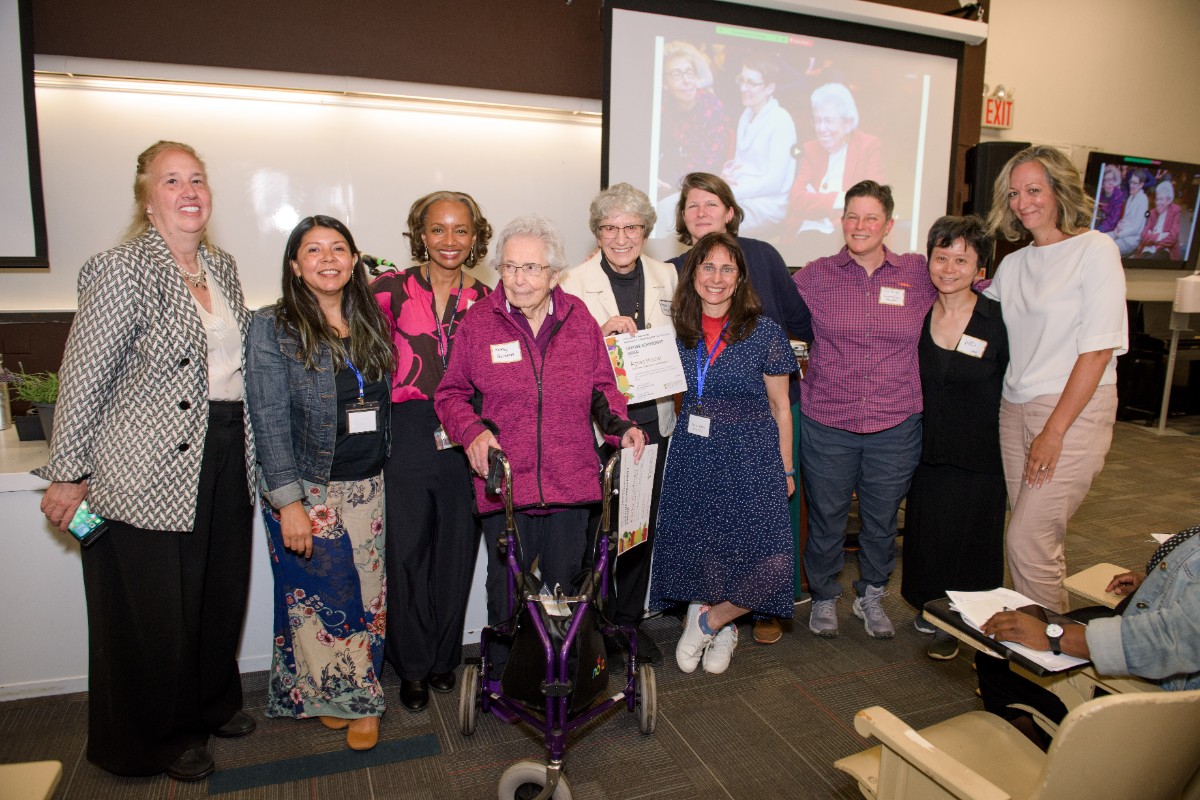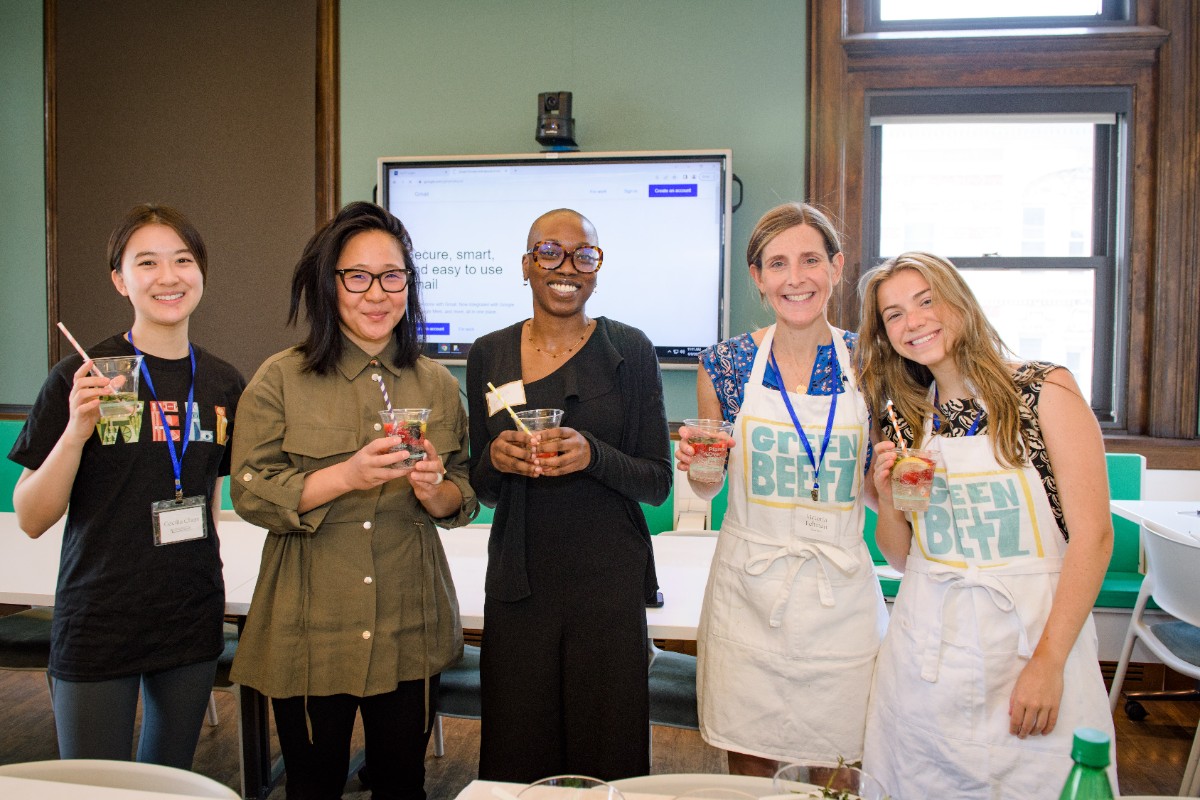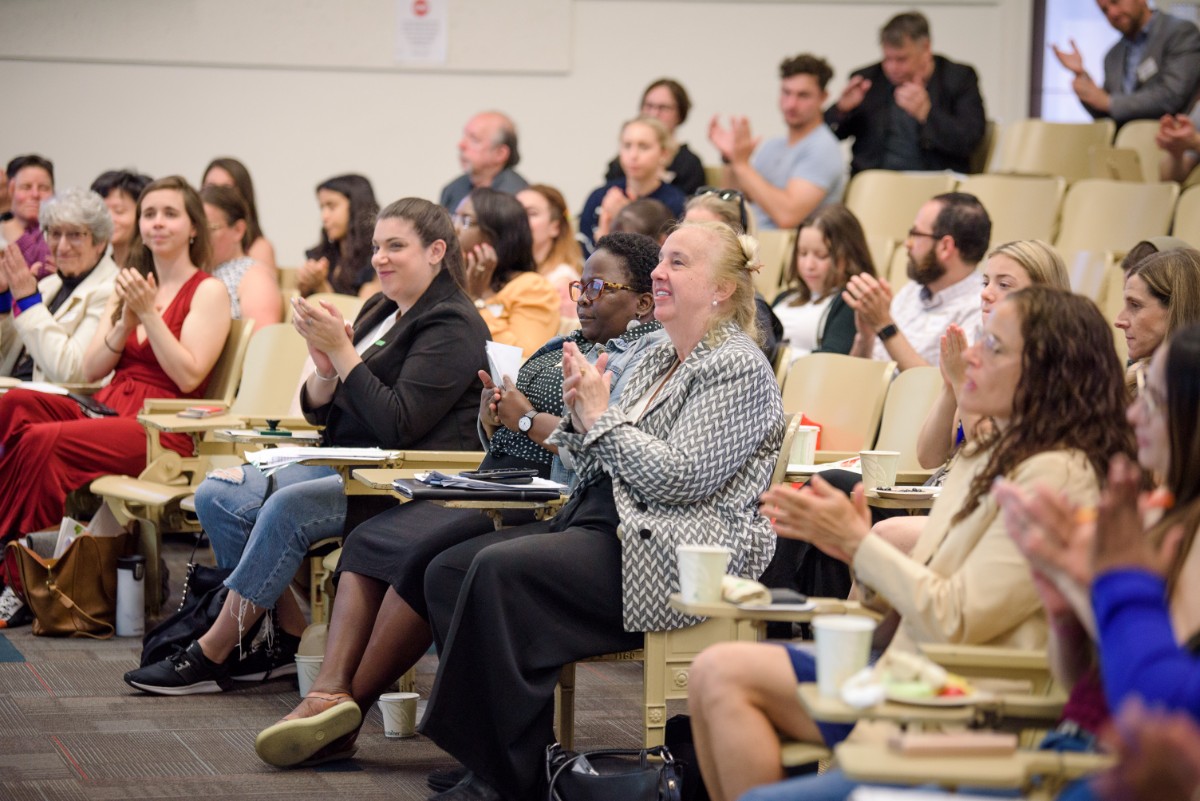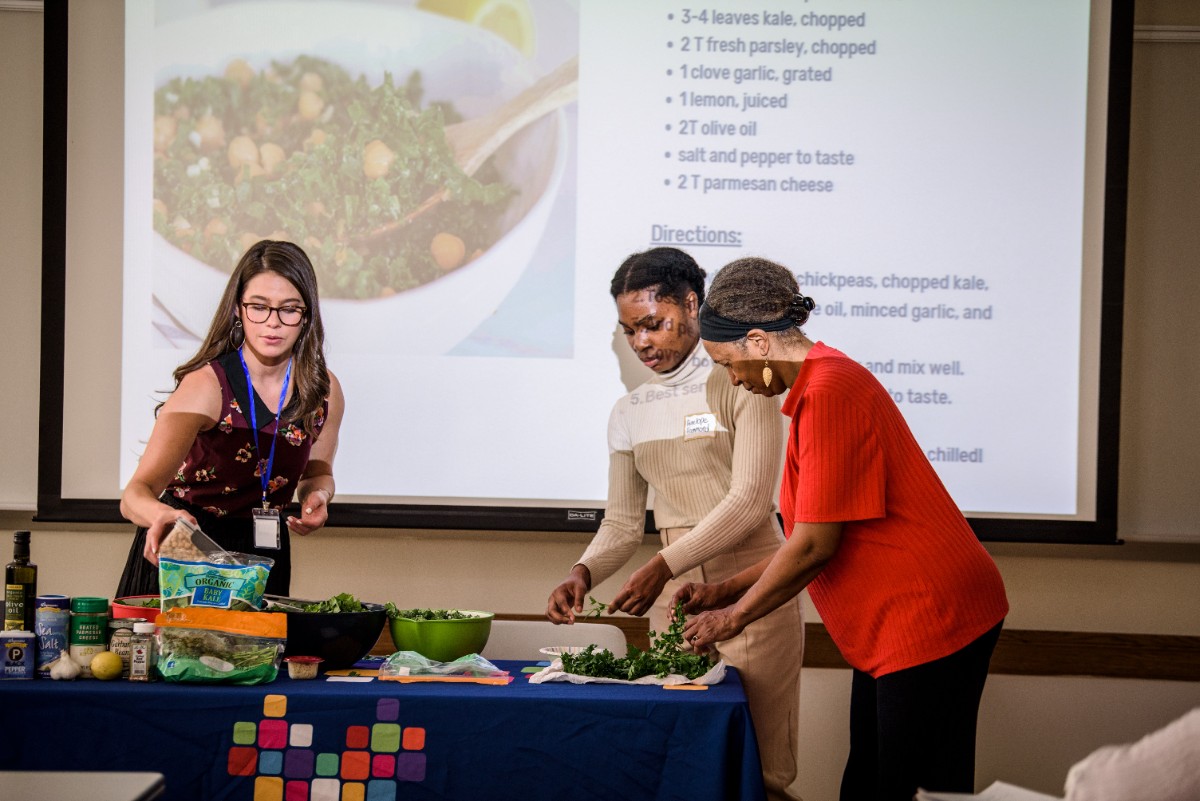Discover the transformative insights and inspiring moments from the Food Ed Hub’s first ever Food Ed Conference and 3rd Annual Award Celebration. With the theme "Ingredients for Nourishing Nutrition Education," the conference brought together nutrition educators, school staff, advocates, and partner organizations to discuss topics such as healthy eating, youth food justice, culinary education, and wellness in schools. The event aimed to foster an exchange of knowledge, recognize food heroes, and offer enriching workshops for all participants. In this article, we will provide an overview of the key highlights from this influential gathering.
The program commenced with a warm welcome and opening remarks, setting the stage for engaging discussions that followed. Pam Koch, Professor of Nutrition Education at Teachers College, shared her vision for a future where healthier eating habits can lead to a significant reduction in chronic disease and emphasized the importance of teaching hands on learning in the development of healthy eating habits. City Council Member Gale Brewer offered opening remarks, sharing her experiences as a dedicated food advocate and the on-going Council initiatives that aim to improve nutrition in New York City. Kate Mackenzie, Executive Director of the Mayor’s Office of Food Policy, provided a keynote speech emphasizing the importance of an equitable, sustainable, and healthy food system. She also shared the Mayor’s recent initiative, “Prioritizing Food Education in Our Public Schools: A Path to Developing a Healthy Next Generation” – a Food Education Roadmap, which serves as a guidebook for school leaders to promote healthier communities across New York City.
One of the highlights of the conference was the Food Ed Coalition Awards ceremony. The awards recognized individuals and organizations that have made exceptional contributions to the field of food education. Recipients were selected based on community nominations and the awards were conferred by the preceding year’s winners. The awards highlighted youth food justice advocates, school heroes, cafeteria heroes, community members, and other individuals and organizations dedicated to working in food education.
Following the opening speeches and awards, attendees had the opportunity to engage in a diverse array of workshops facilitated by Food Ed Hub partner organizations in the field of food and nutrition education. Workshops covered topics such as culinary education, farm-to-school programs, food justice, and innovative approaches to nutrition education. Participants were encouraged to actively participate, share their experiences, and collaborate with like-minded individuals to develop practical strategies for advancing food education in their communities.
In her insightful panel, Nancy Easton from Wellness in the School (WITS) stated that “people talking to people is how change happens,” which is exactly what occurred during the 2023 Food Ed Hub Conference. By offering a platform for nutrition educators, advocates, and experts to come together we can work collaboratively to create a healthier and more sustainable food future for all.
Workshop Highlights Below:
Jeremy Walter from NYC Public Schools Department of Education, alongside facilitator Kirya Traber, provided an interactive workshop on Expanding Food Education in NYC Public Schools which outlined the new roadmap for school leaders to promote healthy eating in communities. The workshop reviewed the recently released Food Education Roadmap to Promote Healthier School Communities, which addresses Knowledge and Habits, Consumption, and Community, with a commitment to Equity and Data. Attendees included experts in food education, such as non-profit directors, educators, dietitians, and other health advocates, who were challenged to share questions and suggestions to contribute to the food education curriculum. Suggestions were then discussed amongst the group to develop collaborative strategies for approaching food education. This collaboration between NYC Public Schools and food education experts is intended to continue beyond this workshop, to ensure effective curriculum building for all NYC students.
Hosted by Brotherhood Sister Sol, Connecting Youth to Food Justice and Nutrition Education, led by Wendy Flores, Environmental Program Manager, and Jaheim Williams, Food Empowerment intern, provided examples of work and best practices from the Food Empowerment curriculum at BroSis. Participants tried out activities from the curriculum, including listing fruits and vegetables for each letter of the alphabet and designing counter-marketing campaigns for fast food. Participants also explored the recipe book developed by BroSis; the recipe book contains QR codes that link to videos to show the recipe in action! Lastly, audiences enjoyed Jaheim’s mapping project of the food system in Hamilton Height, titled “The Hamilton Heights Food System.”
Jessica Feldman from Common Threads hosted the Kitchen Clinic workshop featuring a recipe demo of a kale and chickpea salad. Audience members were encouraged to participate in the food preparation and experience how hands-on learning can encourage healthy eating habits. Jessica shared her personal experience working with students, “once kids are the one’s preparing, they take pride in it, and want to try it. The more involved they are in the process the more they are willing to expand their horizons.”
Facilitated by members from the Youth Food Justice Network, Nibora Jean Pierre, Youth Food Justice Coordinator, and Diannelly Choisene, Gentrification and Food Access defined and described gentrification, food insecurity, redlining, white flight, and blockbusting. Participants had the opportunity to design their own neighborhood. The workshop ended with a game of jeopardy to check the audience’s understanding of gentrification, redlining, white flight, and blockbusting and how they contribute to food insecurity in low-income communities.
The team from Cornell Cooperative Extension of Suffolk County, including Christina Naldone, Italia Guerrero-Grandshaw, Connie Zhu, Marta Blanco and Zahrine Bajwa, discussed their program to bring diabetes nutrition education to low-income participants. They discussed what a “healthy plate” looks like for diabetes management, and provided tips for eating better on a budget. Specifically, they showed examples of “dollar-store meals” their team put together, and engaged the audience with a cooking demonstration and taste-test of their “Meatless Zucchini Spaghetti and Meatballs” recipe.
At the New York City Chefs in the Schools Partnership lunch panel, Pam Koch moderated a Q&A with Nancy Easton of Wellness in the School (WITS) and Chris Tricarico, NYC Public Schools Office of Food and Nutrition Services, who have worked together on the initiative to create scratch-cooked, plant based, and culturally relevant recipes for all public schools.
At the Nutrition Education: A Skills-Based Approach for NYC Schools lunch panel, participants heard from facilitators Sarah Cocuzzo, Tanya Bacchus, and Amy Dawson of the NYC Public Schools Office of School Wellness Programs. A participant noted, “The three people that led this panel were so intelligent and well-informed. I enjoyed the discussion and would appreciate hearing more from them in the future. I thought the audience also connected well with the panel and was able to receive great instruction and ideas to move forward.”
Facilitated by members from Green Beetz, Vicky Feltman and Rebecca Marratta, the Rethink Your Drink workshop illuminated healthier alternatives to sugar-sweetened beverages and other sources of sugar. It also offered participants the opportunity to actually quantify the sugar content in their everyday beverages. Participants were then encouraged to step into the shoes of an artisanal beverage creator, crafting their own natural sodas using a vibrant medley of fresh fruits, vegetables, herbs, and spices.
Led by Anna Lilia Araiza and Abbie Watts of Community Food Advocates, School Food 101 took to myth-busting the common misconceptions we can have about school food. They believe in engaging the whole school community when it comes to creating a happy and healthy school food program.
In this playful workshop, participants joined Jonathan Saturday, Director of Growth & Community Impact, and Kelly Lake, Executive Director of the Beecher’s Foundation to test out “Food Detectives”, a free teaching resource for 4th grade teachers. Animated undercover Food Detectives Chip & Dip work to uncover secret marketing strategies, investigate food labels, and learn how to change the food system!
Led by Program Director Kelley Wind of Coalition for Healthy School Food, participants learned about how the organization works to bring healthy, plant-based foods into NYC schools. Using classroom programs, cafeteria taste tests, and community education, Coalition for Healthy School Food focuses on helping to build healthy habits to combat heart disease, type 2 diabetes, and other diet-related illnesses.



